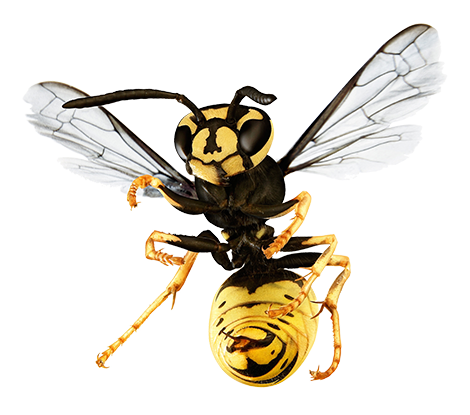Insect bites and stings may be common, but they are a definite nuisance. Bites and stings typically cause pain, inflammation, itching, and sometimes even allergic reactions. In some cases, a severe reaction can result in nausea, fever, difficulty breathing, hives, increased heart rate, and swelling of the throat. Anyone experiencing a severe reaction to an insect sting or bite should seek medical attention immediately. The following insects are among the most common types to bite or sting. Once you identify the insect bite, you can typically treat it at home.
Bee
Most people know full well when they’ve been stung by a bee. Unlike a mosquito bite, which may go unnoticed until it begins to itch, a bee sting causes immediate pain. If you get stung by a bee, you should first remove the stinger from the wound and apply ice for about twenty minutes. If you have honey, you can apply that next. Honey is an excellent natural remedy for bee stings. Many people experience pain in the area of the bee sting for about a day or two. If the pain is bothersome, you can take ibuprofen as directed on the bottle. Be sure to keep the area clean for several days after the sting. Follow this treatment plan in the case of a wasp sting as well.
Mosquito
Mosquitoes are a decided bane, and their bites pose dangerous health risks all over the world. Carriers of disease, mosquitoes can be repelled by wearing bug repellant or staying indoors when mosquitoes are active such as early morning and dusk. If you are bitten by a mosquito, you might not realize it until the bite begins to itch. A mosquito bite generally results in a puffy bump that is pinkish-white in color. Within a day, this bite typically changes to a hard red bump. To deal with the itching associated with a mosquito bite, wipe the area with rubbing alcohol. For severe itching, you can apply a paste made from baking soda and warm water to the bite.
Spider Bite
Depending on where you live, a spider bite may require medical attention, particularly if you experience nausea or fever. If the bite forms a bull’s eye shape on the skin and begins to blister, you may have been bitten by a brown recluse spider and will need medical treatment. For common spider bites, however, you’ll simply want to control the itching and swelling associated with the bite. First, wash the bite area and then apply an ice pack to reduce the swelling. If the itching bothers you, apply to rubbing alcohol to the bite.
Flea Bites
If you live with pets, you may be at increased risk for flea bites. Fleas will bite any warm-blooded creature–not just your pets. The most important thing in the case of a flea bite is to make sure your home is not infested. If you are bitten by a flea outside of your home, you might simply treat the bite, which tends to be itchy and may cause a small raised red bump. An over-the-counter cream or lotion may help soothe bites. You may also wish to take an antihistamine tablet for severe itching. Remember that the bites won’t stop in your home, however, until you rid the premises of fleas.
Ticks
If you live in or near the country, tick bites are a common occurrence, but one you’ll want to avoid. Unlike many insects that bite and then disappear, tick bites and invariably remains attached to its host. It’s important that you remove the entire tick from your skin before treating the bite area. Often these bites resemble spider bites; however, you can tell it’s a tick bite if the insect is still there. Remove the tick with tweezers and then clean the area well with soap, warm water, and rubbing alcohol.
Insect bites and stings are troublesome, but usually harmless. However, if your symptoms become severe or the bite does not improve in a few days, you should seek medical attention.

